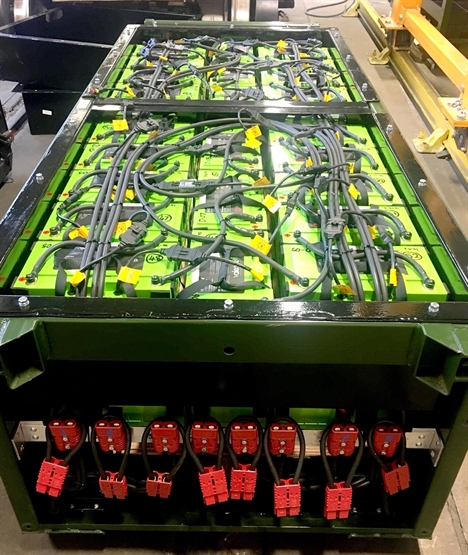09.03.17
Where next for the D-Train?
Source: RTM Feb/Mar 17
Adrian Shooter, chair of Vivarail and former chair of Chiltern Railways, discusses the future of the company’s Class 230, after the recent fire incident during testing at Christmas.
It wasn’t ideal. On one of the last test runs before the Class 230 entered active service on the Coventry to Nuneaton line, a fire broke out in one of the engine modules.
As is natural, perhaps, for this most high-profile of projects, the incident happened right outside the new Kenilworth station in full view of the public, who were shortly joined by the media. Within minutes Twitter was also alight with photos and comments – many lamenting, some gloating, at the rather ignominious end to the trial.
But to paraphrase Mark Twain: rumours of Vivarail’s demise were greatly exaggerated.
The perfect storm
It really was the perfect combination of elements to create a visually spectacular fire that burned for about 30 minutes.
The root cause of the fire was, essentially, established as a fuel leak. The subsequent investigation found that there were a number of simple changes that would mitigate against it happening again in the future.
We are an optimistic bunch at Vivarail and so rather than bewail our fate, we have used this to make some improvements to the internal design of the engine module and taken comfort in the fact that other integral elements – such as the fire barrier under the saloon floor – has been proved to perform admirably.
Going forward: a blank page
The Class 230 project has, from the start, been based on many years of experience in running and maintaining trains. Many of our decisions and rationale have been based around a ‘what if’ methodology, and the core one was always: what if someone designed a train that needed minimal maintenance?
We knew that our train would be ideal for branch lines across the country – although of course it would have other applications, it’s not a one-trick pony! Many of these routes are isolated and accessing main depots is no simple matter. Indeed, on some of the routes we studied trains were travelling scores of empty miles every week just for the pleasure of undergoing some routine checks.
So our basic premise was to build a train that could be maintained trackside, simply by housing all the vital equipment within easily accessible and detachable modules and with a no-nonsense remote condition monitoring (RCM) system.
Again, drawing on our experience, we knew that many RCM systems were designed to monitor everything – with the result that much of the data was meaningless.
Primarily, what operators really need to know is if something is going to fail – and if that could be supplemented up by information to use in routine checks – then returns to depot could be nigh on nullified.
With two engines on each power car, the train’s redundancy was immediately minimised – should one engine fail then the other would take over and normal service could continue until the module was swapped out.
The prototype train was built to be diesel-powered, but in actual fact the train is a diesel electric. The diesel engine is not what is powering the train and the train itself does not mind at all where it gets its power from, which opens up a whole range of possibilities.
So we began to build a new test car, work on which is nearly completed at our Long Marston base. This first new version will operate as a battery train. Once this concept is proved we can easily change the modules to test it in any variation.
The wider picture
When we started on the Class 230 project (a mere two years ago!) the main problem facing the industry was a lack of diesel stock, hence we made it our priority to be in a position to provide diesel units speedily and cost-effectively.
However, events happen and now many operators are dealing with changes – delays or even cancellation – in the plans to electrify their parts of the network. It may not be popular, but in some cases the economic benefits do not stack up and in others infrastructure is a major issue. This leaves operators in a tricky position – the travelling public is expecting what they have been told will be upgrades, and whether true or not, local opinion is likely to be unimpressed to find out their particular service will remain the same – especially if there is already a lack of capacity to add to the mix!
It quickly becomes apparent that the modular Class 230 is ideally placed to solve this problem, where someone is expecting a ‘clean’ electrified service being told they will have a diesel train is not going to go down well. However, giving them a battery/diesel hybrid train – green, modern and quiet – will easily mitigate against that.
Of course, there are places where electrification can still go ahead but obstacles – tunnels, for example – make it extremely expensive. There, a train picking up its current from upstairs or downstairs backed up with a battery to carry through the non-electrified sections of track would again give an operator an easy solution.

The future
There is no magic bullet that will solve every need across the network, but the Class 230 certainly gives operators new options for their fleet. Its different power options combined with flexible internal layout make it a train that will work for operators and passengers alike. So when we are asked what the future holds for Vivarail, we are confident to say it is business as usual for our innovative train.
FOR MORE INFORMATION
The full report into the incident can be found on the Vivarail website:
W: www.vivarail.co.uk
Tell us what you think – have your say below or email [email protected]